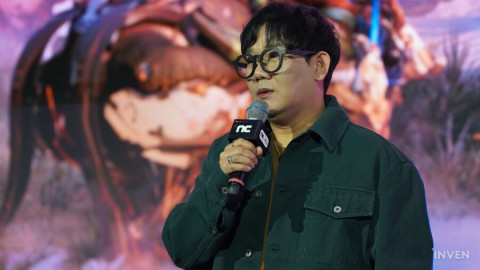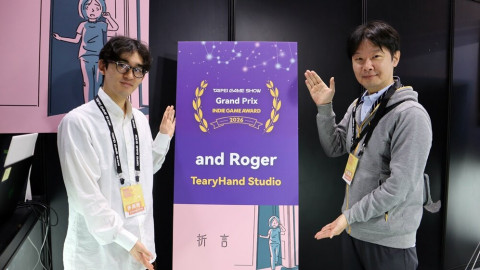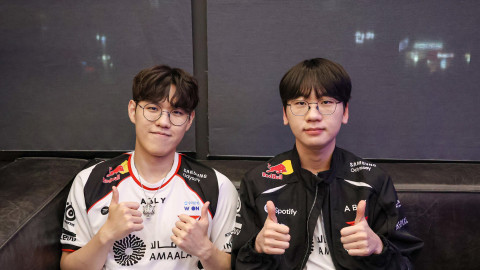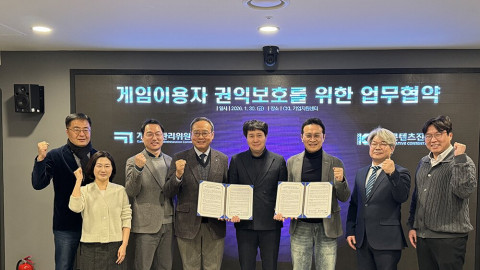
On October 13, 2023, the Inven Game Conference (IGC) in Pangyo, South Korea, hosted a captivating lecture given by Colin Walder, the Engineering Director, Management, and Audio at CD Projekt RED. With over 15 years of experience working in Audio Code on AAA games, including high-profile projects like Cyberpunk 2077, Witcher 3: The Wild Hunt, Red Dead Redemption 2, and GTAV, Walder possesses extensive knowledge in not just the technical aspects of game development, but also in crucial areas such as team building, project management, and corporate culture reshaping.
Walder's talk, aptly titled "RED 2.0: Changes in Game Development History," delved deep into the significant cultural and structural transformations CD Projekt RED underwent before and after the tumultuous production and subsequent release of Cyberpunk 2077. The insightful session was divided into two segments: an in-depth lecture followed by an interactive Q&A session with the attendees.
The Lecture: Learning from the Past, Transforming for the Future
Navigating the Troubled Waters of Cyberpunk 2077
The lecture began with a reflective overview of the launch of Cyberpunk 2077, emphasizing the hurdles the company encountered due to the game's initially disappointing reception. Walder candidly acknowledged this period as a crucial point of self-examination and restructuring for the company. He quoted, “The silver lining to this disastrous launch...meant that we had a strong motivation for change. As a company, (we) could start to consider a transformation."
The narrative was set against the backdrop of their newest release, the expansion Phantom Liberty, with its launch trailer being different in reception compared to the initial Cyberpunk 2077 release. The contrast highlighted the journey the company had undergone, from facing severe criticism with headlines like "Cyberpunk 2077: How the biggest thing in gaming became the industry’s biggest disaster," to a place of recovery and hope.
The crux of the matter was the acknowledgment that the launch was far from the ideal scenario they had envisioned. It propelled the need for change, specifically in their game development processes. This was more than a fleeting consideration; it marked the beginning of a story of transformation, primarily from the tech team's perspective, dating back to the initial development phases of Cyberpunk 2077 in 2017.
Post the successful launch of The Witcher 3: Wild Hunt, the company was at an all-time high, and the development of Cyberpunk 2077 commenced. However, the tech department lacked unified leadership, leading to fragmented sub-teams built around various technical "superstars." These divisions, though driven by skilled developers, often clashed on the technological direction, resulting in a shaky foundation for game development.
The company drew parallels between their situation and the 2018 World Cup final between Germany and Brazil. While Brazil boasted individual superstars, Germany's victory was attributed to their cohesive teamwork. This analogy shaped the company's new focus on collective success over individual brilliance, prompting a shift towards genuine team-building and management skills development, anchored in Patrick Lencioni's teachings.
The stumbles of Cyberpunk 2077 were not in vain, as they instigated a comprehensive reassessment of CD Projekt RED’s practices. This period marked a shift from traditional methodologies to more collaborative and agile practices in game development.
Emphasis on Core Values
Walder passionately discussed the integral role of core values in forging a successful team. He elaborated that these foundational principles must resonate with each team member and drive their behavior and expectations. “Core values...provide the foundation for our culture...they bind us together...let us know how we should behave, what we should expect," Walder expressed.
The director warned against "accidental values," which can arise if values are not deliberately cultivated, and can potentially impede progress. He distinguished between different types of values, including aspirational, permission-to-play, and core, stressing that authentic core values are foundational and already present in a company's culture.

Despite initial skepticism from team members—who dismissed the focus on values as "corporate BS"—the concept was eventually embraced as essential to fostering a healthier, more cohesive workplace culture. This shift marked a significant step in the company's journey toward reinvention and continuous improvement, rooted in the lessons learned from the challenges of the past.
Humility, Ambition, Communication: The Triad of Success
The veteran of the game industry further underscored the transformative power of core team values, with a particular focus on humility, ambition, and smart communication.
Regarding humility, Walder emphasized it not as a sign of meekness but as a crucial form of self-awareness. He likened it to a "golden check," signifying an individual's capacity to acknowledge their weaknesses, ask questions that may appear naive, and learn from colleagues regardless of their experience or field. Prioritizing team success over individual recognition was paramount in this context, as Walder stressed that personal achievements ring hollow if the team doesn't thrive.
Ambition, often referred to as "hunger," was described as an unwavering drive not merely to participate but to innovate, lead, and excel in the gaming industry. It's this internal motivation and passion that propel teams toward their objectives and ultimate success.
In the realm of team dynamics, being "smart" transcends technical proficiency. Walder emphasized the importance of emotional intelligence, including building robust relationships, comprehending colleagues, and engaging in effective and empathetic communication. He challenged the stereotypical image of programmers as mere code writers, emphasizing their need to be well-rounded communicators.
In addition to emphasizing core values, Walder encouraged the idea of taking "extreme ownership." This concept revolves around proactively assuming responsibility beyond one's defined roles and understanding the bigger picture to contribute extensively to the project's success. Walder clarified that ownership extends beyond personal tasks; it pertains to the collective success of the team.
Reflecting on the challenges faced during the launch of Cyberpunk 2077, which included delays and a demanding work culture, Walder noted that areas where core values were strongly present displayed greater resilience and success. These difficult times reinforced their commitment to these values, sparking a company-wide transformation. This transformation involved structural changes, a reevaluation of production strategies, and the adoption of agile methodologies for more collaborative and efficient outcomes.
The insights gained from past experiences were meticulously applied to subsequent projects, most notably Phantom Liberty. CD Projekt RED's unwavering dedication to its core values, coupled with the revamping of its structural and operational practices, culminated in the game's success, marking a remarkable comeback for the company.
The Q&A: Engaging with Curiosity
The opening lecture set an engaging tone, with Walder delivering his insights and wisdom to captivated attendees.
Core Values: The Heart of the Team
Walder stressed the importance of core values during his talk, urging attendees to discover and adopt values that resonate with their own teams. He emphasized that core values are not only applicable to small teams but also scalable, maintaining unity and purpose as organizations grow. In fact, he suggested that core values have the potential to influence societal norms.
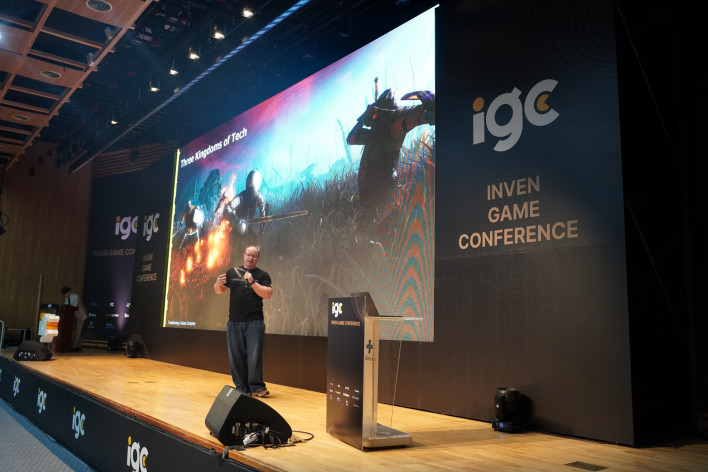
To help attendees further understand and nurture these fundamental principles, Walder recommended reading Patrick Lencioni's books, particularly "The Five Dysfunctions of a Team" and "The Ideal Team Player."
Within Lencioni's framework, Walder highlighted the concepts of being humble, hungry, and smart as effective core values. He encouraged the audience to examine their team dynamics and pinpoint the values that define them, proposing that these principles should serve as guiding principles for teams of all sizes, from small-scale operations to large-scale organizational management.
Collaborative Synergy: The Pathway to Enhanced Outputs
In response to an attendee's question, Walder reflected on past challenges faced by the company, particularly the feedback from players regarding the need for more realistic AI reactions in their games, especially concerning crowd behavior and the police system after the release of Cyberpunk.
To address these issues, Walder explained that they took a different approach by breaking down the 'silos' that used to separate coders and designers into distinct groups. He recognized that this old approach hindered collaboration and slowed down gameplay development. On the contrary, the introduction of cross-functional teams, where coders and designers collaborated closely, played a pivotal role in improving the AI and the overall gameplay experience.
He highlighted a specific example where the AI used in-game acoustics to respond more realistically to the player's actions. This improvement directly resulted from the collaboration between the newly integrated teams.
Walder's conclusion emphasized a significant transformation at CD Projekt RED: by removing barriers within their working teams and promoting interdisciplinary collaboration, the company successfully enhanced the player experience in their recent projects. This change not only addressed previous player feedback but also positioned the company for more comprehensive and responsive game development in future endeavors.
Beyond Brilliance: The Need for Team Harmony
During a thought-provoking moment, Walder challenged the idea of putting individual brilliance above team harmony. He acknowledged the value of highly skilled engineers but argued that genius shouldn't disrupt the company's unity.
He made this clear with a hypothetical situation: if a talented person fits well with the team's values and boosts its spirit, they're a great asset. But if a genius causes discord, their brilliance becomes counterproductive.
This philosophy is central to CD Projekt RED's approach. They prioritize a united team, not just technical excellence. Managers and staff engineers play a role in this. Besides their technical jobs, they also nurture their team's skills and cohesion. This ongoing development helps individuals excel while strengthening the team.
In short, CD Projekt RED values a harmonious team because it fosters a positive work environment and drives the company's collective growth and success.
Continual Reinforcement of Core Values: The Secret Sauce for Organizational Resilience and Success
The key to making core values work, as explained by Walder, isn't just about setting them up once and forgetting about them. It's more like keeping a conversation going, making these values an active part of how the team operates.
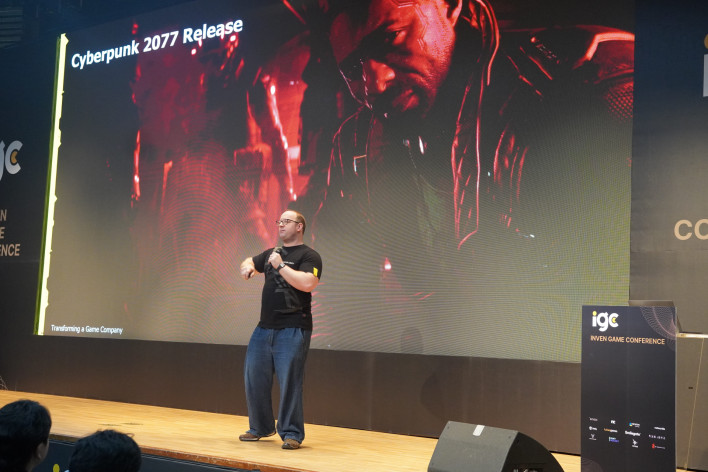
Walder emphasizes the importance of recognizing and appreciating when someone does something that aligns with these values. And this isn't something only managers should do. In a healthy team, everyone should feel encouraged to praise each other for following these values. This creates an atmosphere where everyone supports and helps each other, leading to collective growth.
The real test, as Walder points out, comes when things get tough. That's when having strong values in place really matters. If the team truly understands and believes in these values, they will naturally stick to them, especially in challenging situations. This ability to stay true to the values under pressure is a sign of a strong and healthy culture.
What excites a manager the most is when team members start championing these values on their own. It shows that the values have become a part of the team's DNA. When team members believe in and uphold these values, it helps the team navigate challenges with unity and strength.
In simple terms, constantly talking about and celebrating core values in a company doesn't just shape its culture; it makes the team more resilient and successful, even when faced with tough times.
The Resilient Spirit and Unwavering Commitment
When asked about the release of Cyberpunk 2077, Walder emphasized the immense disappointment and difficulty the company experienced when the game's release fell short of their expectations and was met with significant criticism. However, he highlighted the company's shared passion, hunger for success, and ambition as crucial driving forces that enabled them to persevere in the face of adversity.
Despite the setbacks, CD Projekt RED's commitment to its core values remained unwavering. These values served as guiding principles that helped the company navigate through turbulent times. Walder stressed the importance of having core values deeply ingrained in the company culture, as they provided a compass for decision-making and a source of motivation during challenging moments.
Walder noted that CD Projekt RED's journey was not about giving up but rather about recognizing their failures and committing to making things right. Their core values fueled their determination to improve Cyberpunk 2077 and deliver a better experience to their players. This commitment ultimately led to the successful launch of Phantom Liberty and the company's resurgence in the gaming industry.
Concluding Reflections
Walder's talk at the Inven Game Conference (IGC) was more than just a review of Cyberpunk 2077's bumpy ride. It showcased CD Projekt RED's ability to adapt, stay resilient, and stick to its core values, teamwork, and the pursuit of greatness.

Their journey from Cyberpunk 2077's troubles to Phantom Liberty's success is a perfect example of how looking within, being open to change, and never giving up can lead to transformation.
This story highlights how important it is to build a united, values-driven culture. CD Projekt RED's focus on teamwork, integrating diverse teams, and always reinforcing their core values played a big part in their comeback.
IGC isn't just about games; it's about making the gaming world better. Walder's lessons aren't just for game developers; they're for any team aiming for success. They stress the importance of unity, strong values, and constant growth as keys to lasting achievements. IGC's mission is to create a healthier gaming world, and CD Projekt RED's journey shows what's possible when you stick to your values, work together, and strive for excellence.
-

I write. I rap. I run. That’s pretty much it.
Sort by:
Comments :0

